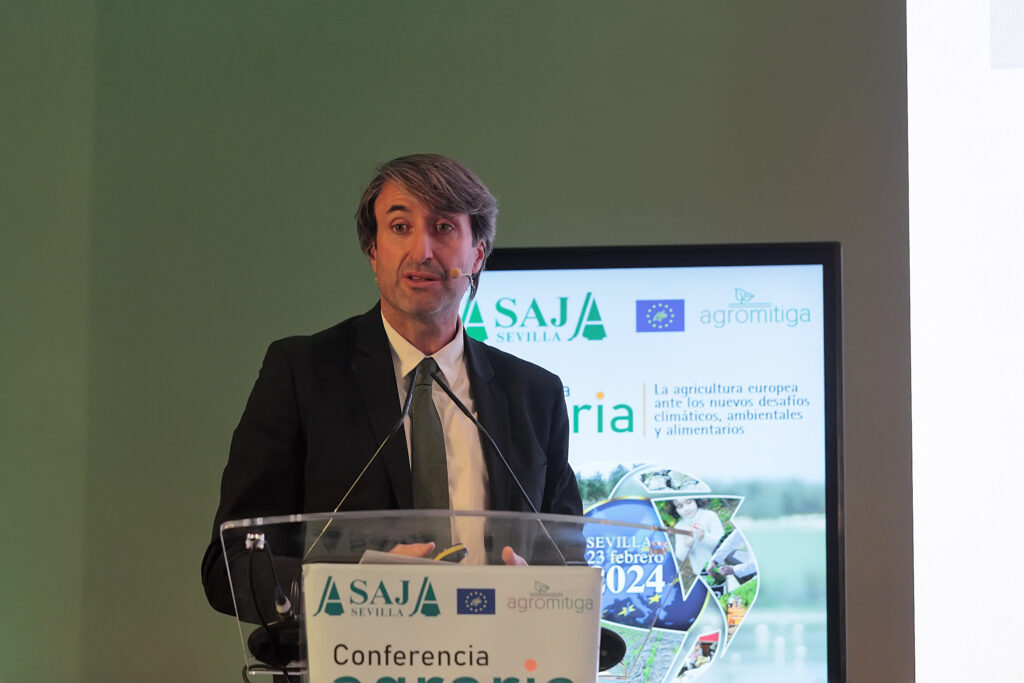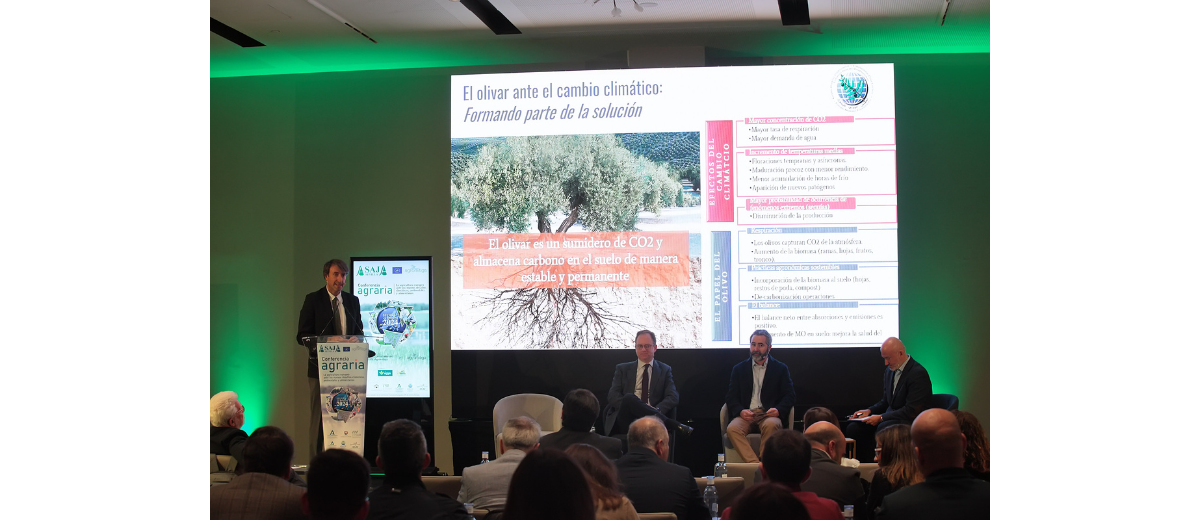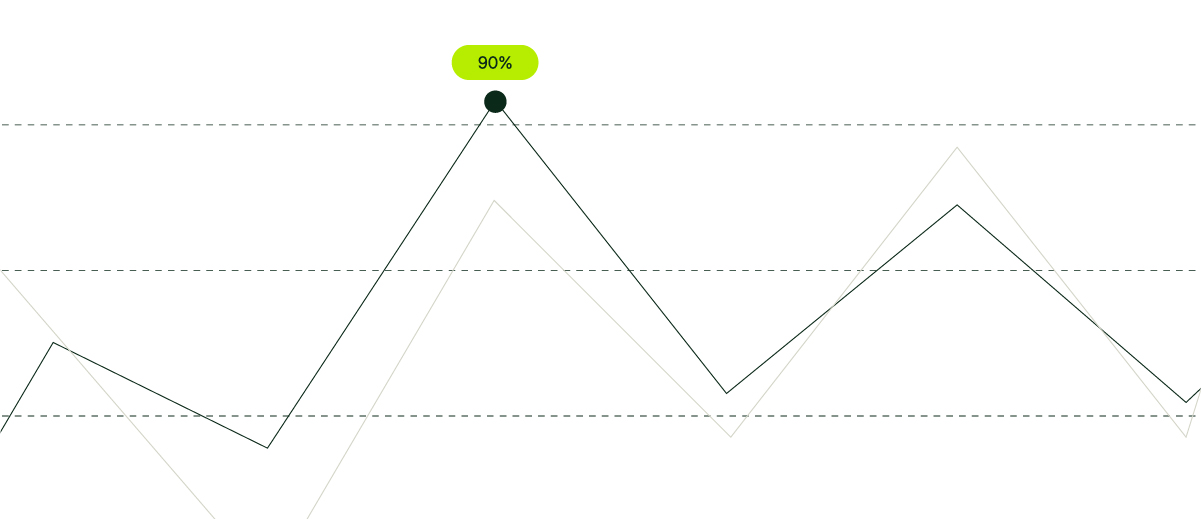Olive oil is good for your health and the environment
The IOC’s Executive Director, Jaime Lillo, participated in the results presentation of the LIFE Agromitiga Project which took place in the framework of ASAJA-Sevilla’s conference “European agriculture in the face of new climate, environmental and food challenges” (Seville, Spain, Friday 23 February). The LIFE Programme, which has culminated its fifth development phase, stands out as the European Union’s (EU) financial tool solely devoted to environmental and climate initiatives. In his intervention, Jaime Lillo highlighted the fundamental role played by olive groves in facing climate change.

He recalled that the Intergovernmental Panel on Climate Change (IPCC) had, for the first time in history, recognised agriculture’s carbon absorption capacity as an effective strategy for achieving the United Nation’s 2050 climate neutrality objectives. The case of olive groves is particularly relevant in this regard: they represent world’s largest forest domesticated by humans, with an average CO2 absorption capacity of 4.5 t. In simple terms, behind every single litre of olive oil produced breathes an olive grove that captures more than 10kg of CO2 from the atmosphere.
In the context of a world faced with the challenge of producing more food in a sustainable way for an ever-growing global population, Lillo urged that we bear in mind the fundamental role of agricultural activity as a guarantor of food supplies and as an irreplaceable environmental safekeeper. Before the olive sector lies a fantastic opportunity for ensuring that its natural capacity as a carbon sink be enhanced by more sustainable agronomic practices and recognised by society through the recently approved voluntary certification framework for carbon credits. In this regard, the IOC Executive Director presented the Organisation’s permanent line of work on sustainability and climate change, as well as the progress made towards developing a methodology for calculating the olive groves’ carbon balance. Taking into account the olive tree’s role as a permanent and stable carbon store, the message is clear: “Olive oil is good for your health and for the environment.”
Launched in 1992, the LIFE Programme is the EU’s only financial instrument dedicated exclusively to the environment and climate. Its general objective is to contribute to the implementation, updating and development of Community policy and legislation on the environment and climate change, including the integration of the environment into other policies, in order to contribute to sustainable development. The LIFE Agromitiga project aims to contribute to the transition towards a low-carbon agricultural system by providing validated results applicable to the EU’s commitments in global climate partnerships.









